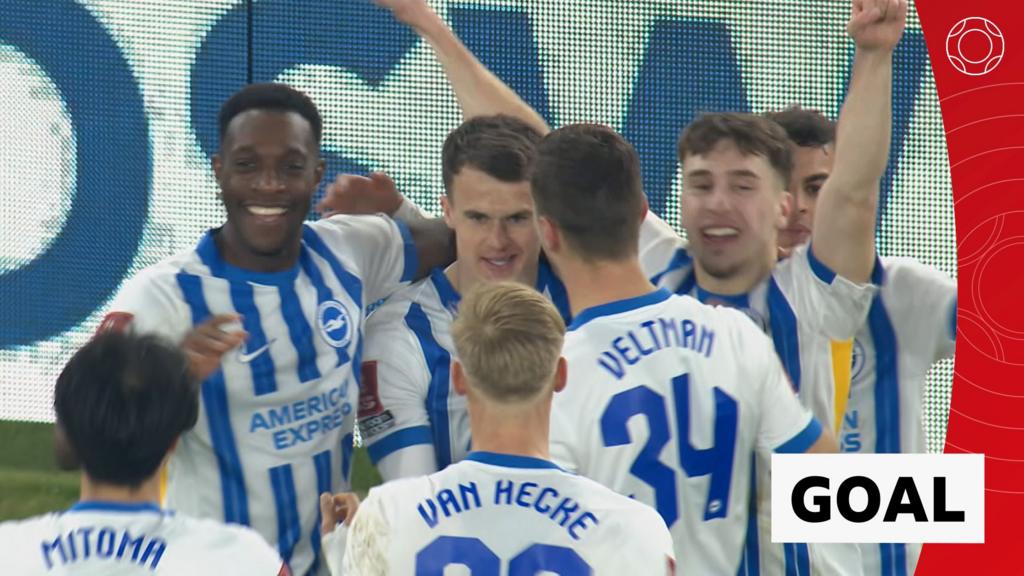
Rich Cimini, ESPN Staff WriterJan 11, 2025, 06:00 AM ET
- Rich Cimini is a staff writer who covers the New York Jets and the NFL at ESPN. Rich has covered the Jets for over 30 years, joining ESPN in 2010. Rich also hosts the Flight Deck podcast. He previously was a beat writer for the New York Daily News and is a graduate of Syracuse University. You can follow him via Twitter @RichCimini.
FLORHAM PARK, N.J. -- The New York Jets' team plane was flying east in the wee hours on Sept. 10 when the conversation among some coaches turned to the promising season ahead. They had just been embarrassed on "Monday Night Football" in Week 1 -- a 32-19 loss to the San Francisco 49ers -- but their confidence still was 40,000 feet high.
"I remember someone on the plane was saying it over and over again that, 'When we get to 2-1, watch out,'" interim coach Jeff Ulbrich recalled.
The Jets got to 2-1 with wins over the Tennessee Titans and New England Patriots, and then things fell apart.
They lost 11 of their next 14 games to complete perhaps the most disappointing season in franchise history. With a healthy Aaron Rodgers at quarterback, the Jets fancied themselves as championship contenders. Woody Johnson called it his best roster in 25 years of ownership. What unfolded over the last four months was a meltdown of epic proportions, a 5-12 season that often defied logic.
A team with at least three potential Hall of Famers (wide receiver Davante Adams, tackle Tyron Smith and Rodgers), a handful of accomplished stars and several ascending talents blew leads and drew penalty flags as if it was a young, unproven squad in the early stages of rebuilding.
"Gut wrenching," defensive tackle Javon Kinlaw said.
The Jets lost a franchise-record six games after leading in the fourth quarter, committed a league-high 137 accepted penalties, eclipsed the 30-point mark only twice and lost six games in which they were favored -- the true definition of underachieving. Only the 49ers (seven) lost more as a favorite.
It was a season unlike any other in recent generations because, for the first time since 1975, there was an in-season firing of the head coach. Four weeks after that post-San Francisco plane conversation, Ulbrich replaced Robert Saleh, who was sacked after a 2-3 start.
General manager Joe Douglas was dismissed six weeks later, but it was the Saleh firing, according to several players, that triggered the season's demise. Aside from the shock value, it cracked the foundation and created an air of uncertainty, they said.
"It's just hard for a team to win when you know your coach and GM are getting fired midway through the season," running back Breece Hall said. "It's just a lot of stuff up in the air."
Cornerback D.J. Reed said, "It impacted the team because it caused a distraction."
Ulbrich was a well-liked defensive coordinator, but he had no head-coaching experience on any level. That, coupled with the burden of wearing two hats (head coach and defensive coordinator), prompted players to wonder throughout the season if Ulbrich was stretched too thin.
"It put a lot more on Brick's plate," nickelback Isaiah Oliver said of the Saleh dismissal. "It put more on everyone's plate -- the coaches, the staff in general. So did that have an effect? I don't know for sure. You think maybe that was the reason why. Maybe it wasn't. I don't know, but you can't help but wonder."
Ulbrich made game-management mistakes throughout the season. He admitted as much after the Week 17 loss to the Buffalo Bills. In his postgame news conference, he was asked to evaluate Rodgers' performance. His answer was stunning:
"Honestly, I didn't get to see a whole lot of the offense," Ulbrich said. "I was doing a lot of defensive adjustments," for the first two-plus quarters. By then, the Jets were down, 40-0.
Ulbrich didn't yield his defensive coordinator duties because he felt it was important to maintain continuity, especially after he decided to demote Nathaniel Hackett and make Todd Downing the playcaller on offense. Too much change, he felt, would be counterproductive.
In retrospect, Ulbrich acknowledged the difficulty of the dual role, saying, "If I could build it perfect in a vision going forward, I would not be the coordinator and the head coach."
No player blamed Ulbrich for the team's struggles. If anything, they expressed empathy. As one player said, "He was thrown into a difficult situation, with no warning, when we had a game for first place" -- a reference to their Week 6 game against the Bills.
They had 12 games to recalibrate after the Saleh firing, which should've been plenty of time for a veteran-laden team with Rodgers at quarterback. That didn't happen, as the Jets dropped their first three games under Ulbrich, including an inexplicable 25-22 loss to the 4-13 Patriots.
"A moment of darkness," Ulbrich said at the time.
The moment lasted another two months.
THE JETS WERE doomed by a lack of discipline; their 137 penalties were a franchise-high for this century. In fact, their total exceeded that of the 1996 Jets (110). No team wants to be compared to that '96 group, which went 1-15 and is the historical point of reference for all-time futility. The current Jets were so penalty prone that they once got flagged six times in the span of five minutes.
"We did a lot of things the right way off the field, but just as a team on the field, I don't think we were really able to come together as a complete team," Oliver said. "The whole-team aspect just wasn't there. It just didn't click."
Another player said, "Big names and talent don't guarantee wins. We're Exhibit A."
There was no bigger name than Rodgers, who averaged 254 passing yards over the last five games -- a glimpse of the Rodgers that starred for the Green Bay Packers over an 18-season span. Unfortunately for the Jets, they were eliminated from contention by then, so his late flurry amounted to nothing more than whipped cream on a melted sundae.
"He's a unicorn, regardless, and he's still got a lot left," said Adams, forever faithful to his favorite quarterback.
Rodgers started every game, fighting through leg injuries, but he didn't have enough magic to will his team to respectability. There was surprise within the organization that he didn't do a better job of handling in-game adversity. If something went wrong, he sometimes sat on the bench alone, either stewing or wondering why those around him couldn't execute at a higher level. One team source theorized that some of the younger players might have been intimidated by Rodgers.
The coaches catered the offense to Rodgers. He finished with 584 pass attempts, second-most in the league, and set a franchise record with 640 dropbacks. They were the most pass-happy team inside the 20-yard line, which may explain why they finished 21st in red-zone efficiency.
At times, Hall seemed like an afterthought, fueling his frustration. Inexplicably, he never had 20 carries in a game. If Rodgers got close to the end zone, he was throwing; 11 of his 28 touchdowns were five yards or less.
One player speculated Downing was calling plays so Rodgers could reach 500 career touchdown passes (which he did in the final game). There were rumblings Rodgers was audibling out of runs and into passes, although one player insisted it wasn't as often as it appeared.
THE JETS BUILT a team that relied on older players at key positions with Rodgers (41) at quarterback, Smith (34) at left tackle and C.J. Mosley (32) at middle linebacker. The potential downside to that: injury.
Sure enough, Smith and Mosley -- both with neck injuries -- were sidelined for a combined 20 games. Jamien Sherwood replaced Mosley and was voted the team MVP by his teammates, but Mosley's on-field leadership was missed.
Several players said Mosley's absence was one of the keys to the decline of the once-formidable defense. The Jets finished 17th in defensive efficiency, based on ESPN Analytics -- down from third in 2023.
"Despite this season, we never broke or folded, never checked out, as some people were saying," said Reed, alluding to comments that cornerback Sauce Gardner made after that Week 17 loss.
Woody Johnson, in the aftermath of the season-ending win over the Miami Dolphins, praised the team for not quitting. Deep down, he was bitterly disappointed by the season, saying, "Everybody thought this was going to be unbelievable."
But the production never came close to matching the hype. Douglas imported several high-profile players, including Smith, wide receiver Mike Williams, pass rusher Haason Reddick and Adams, who arrived in an October trade.
Their combined 2024 compensation: More than $37 million.
The only player who reached expectations was Adams, who had 854 receiving yards and seven touchdowns in 11 games. Williams lost his explosiveness, got phased out of the offense and was traded to the Pittsburgh Steelers. Reddick missed seven games because of a holdout and was out of shape, one team source said. He had one sack.
Big names, little production.
The Reddick holdout was a dark cloud that hung over the organization from April to October. The Jets traded a 2026 third-round pick for one of the league's most prolific pass rushers, thinking he'd be an upgrade over the departed Bryce Huff. It got messy -- fast. Reddick wanted a new contract, refused to report and surrendered more than $6 million in game checks, ultimately showing up in mid-October under the same base contract that he wanted torn up.
The Jets felt his absence, especially after Week 2, when edge rusher Jermaine Johnson suffered a season-ending Achilles tear. The pass rush sagged, forcing Ulbrich to blitz more than usual. Reddick did little on the field (nine solo tackles in 393 snaps) and declined interviews, once scolding a reporter for being critical of his holdout. One player said of Reddick, "It's like he wasn't even on the team."
And yet Reddick wound up pocketing $9.5 million -- roughly $1 million per tackle.
Despite the struggles, Ulbrich trotted out the same lineup every week, even going out of his way to praise players such as Reddick and defensive end Micheal Clemons -- both of whom were targets of fan angst. It was curious messaging by Ulbrich, who benched only one player all season: safety Tony Adams.
Soon, the Jets will have a new coach and general manager, hoping a new leadership team can end the the longest active playoff drought (14 seasons) in major North American sports. The culture needs an overhaul.
"Every floor of the building is important," Adams said. "You can win games, but to be able to establish a winning culture is a different thing. You need guys to buy in and you need a coach that's able to come in here and win over the players and be somebody that holds everybody accountable so you can get back to that old-school feel of players and coaches, both holding the team accountable to get the most out of team."

 By ESPN | Created at 2025-01-11 13:04:02 | Updated at 2025-01-11 17:05:56
4 hours ago
By ESPN | Created at 2025-01-11 13:04:02 | Updated at 2025-01-11 17:05:56
4 hours ago








